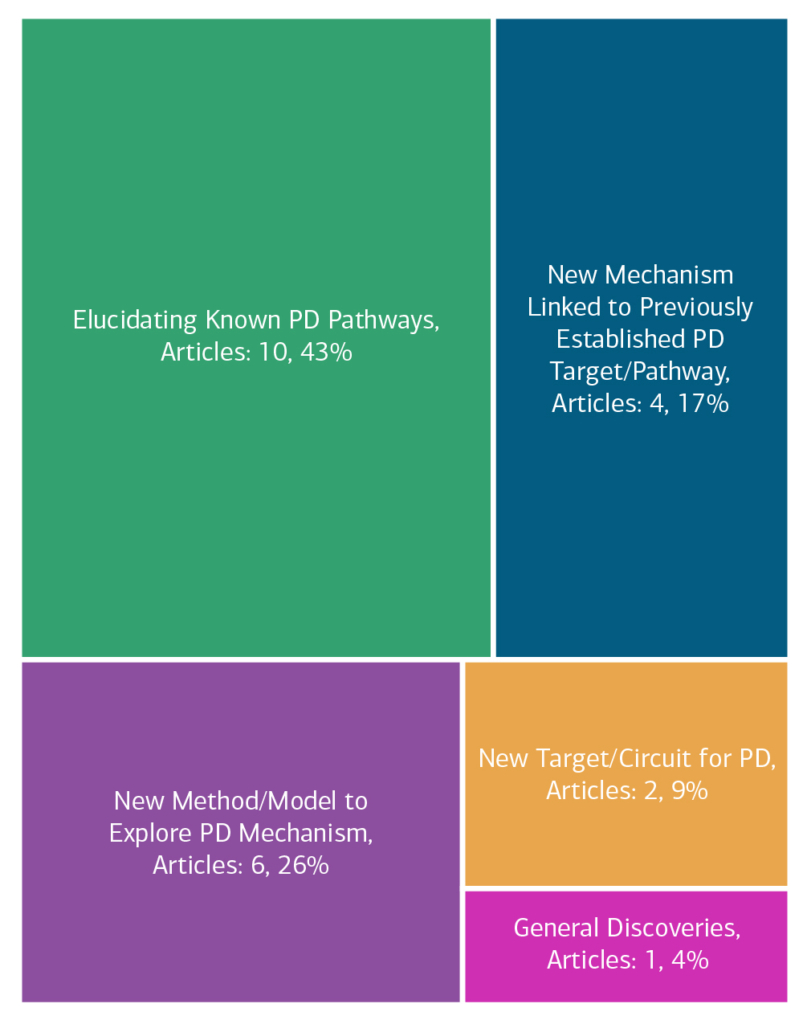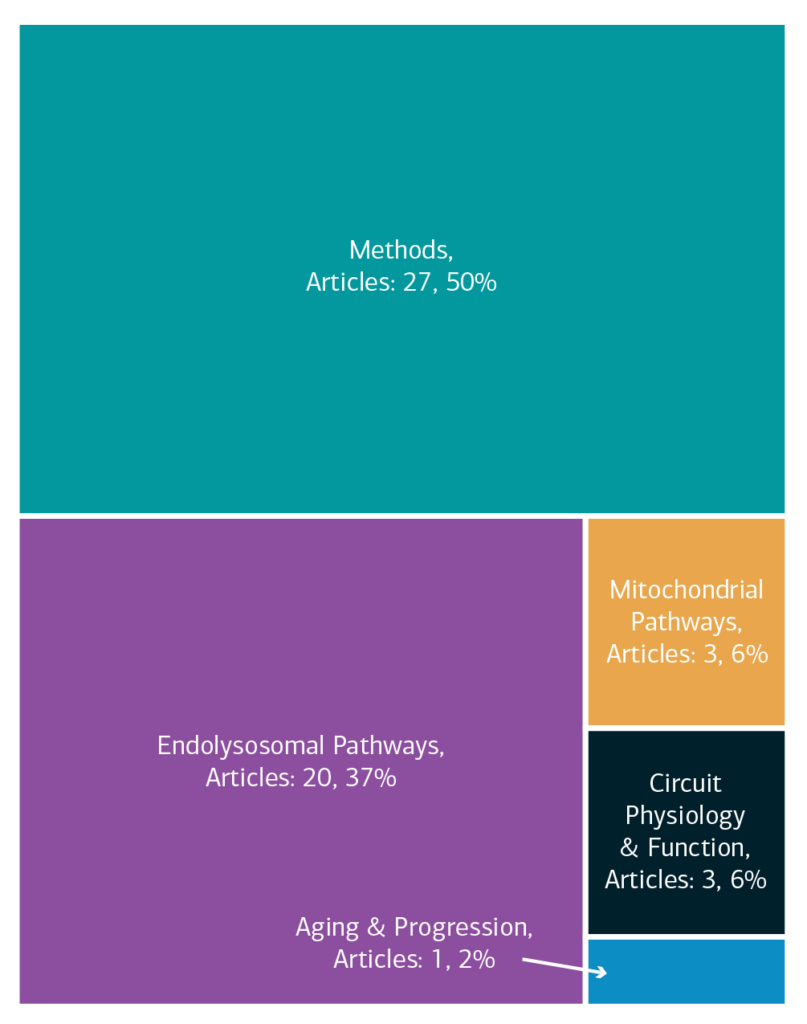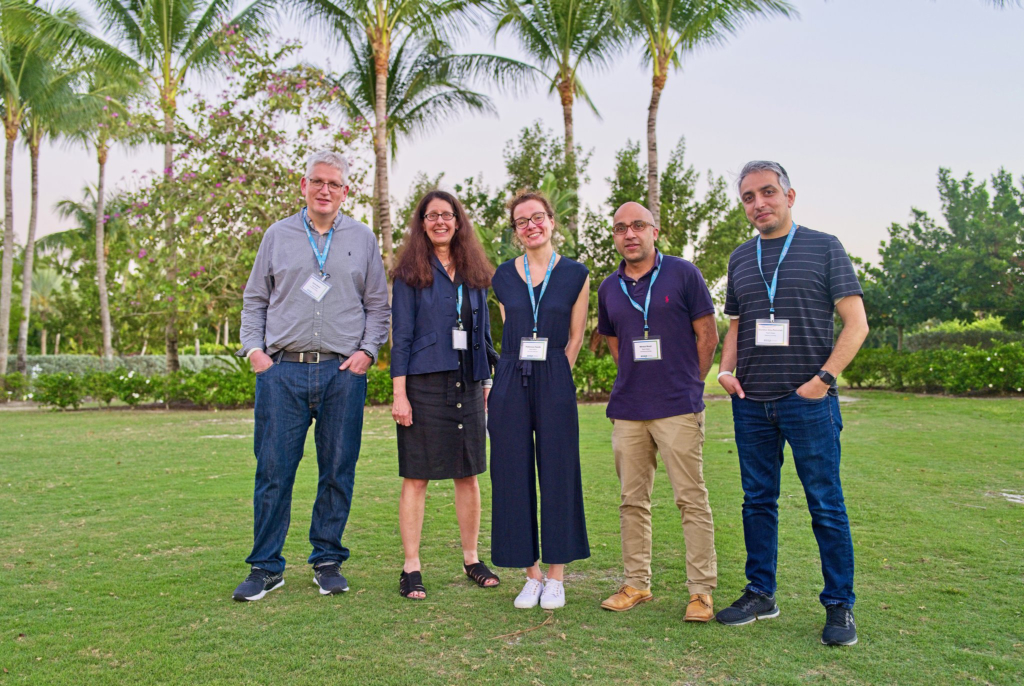PD Functional Genomics | 2020
Mapping the LRRK2 Signaling Pathway and Its Interplay with Other Parkinson’s Disease Components
Study Rationale: Genetic mutations that lead to the activation of the enzyme LRRK2 are a major cause of inherited Parkinson’s disease. Team Alessi aims to combine the complementary expertise of its four research laboratories to perform fundamental, state-of-the-art experimentation to better comprehend the biology that is controlled by LRRK2. Team Alessi’s goal is to gain a much better understanding of LRRK2-driven Parkinson’s disease, hopefully providing a foundation for the development of future therapies.
Hypothesis: LRRK2 targets and modifies a set of enzymes known as Rab GTPases, triggering new biological events by creating new protein: protein interactions. Team Alessi aims to decipher what controls the activity of LRRK2 and to explore, in precise molecular detail, how this enzyme affects three major cellular structures (cilia, lysosomes, and mitochondria) implicated in Parkinson’s disease.
Study Design: Team Alessi showed that mutant LRRK2 triggers a series of molecular changes that cause new sets of proteins to interact. Team Alessi’s goal is to use a combination of state-of-the-art approaches to understand the consequences of these new interactions on the biology of three important subcellular compartments: primary cilia, lysosomes, and mitochondria.
Impact on Diagnosis/Treatment of Parkinson’s Disease: Team Alessi’s findings will provide novel, fundamental information of relevance to understanding the origin and progression of Parkinson’s that they hope will lead to new ideas to better diagnose, treat, and even prevent this malady in the future.
Leadership
Project Outcomes
The project will provide fundamental information regarding how mutations in LRRK2 cause Parkinson's disease. View Team Outcomes.
Team Outputs
Click the following icons to learn more about the team’s outputs:
Overall Contributions
Here is an overview of how this team’s article findings have contributed to the PD field as of June 2025. There are two different categorizations of these contributions – one by impact to the PD community and a second by scientific category.
Impact

Category

Featured Output
Below is an example of a research output from the team that contributes to the ASAP mission of accelerating discoveries for PD.
PPM1M, a LRRK2-counteracting, phosphoRab12-preferring phosphatase with potential link to Parkinson’s disease
Lysosomes are implicated in a wide spectrum of human diseases including neurodegeneration. Profiling lysosomal content using tag-based lysosomal immunoprecipitation (LysoTagIP) in cell and animal models allowed major discoveries in the field; however studying lysosomal dysfunction in human patients remains challenging. Here, Team Alessi reports the development of the tagless LysoIP method to enable rapid enrichment of lysosomes directly from clinical samples and human cell lines. Isolated lysosomes are intact and suitable for subsequent “omics” analyses (including proteomics, lipidomics, and metabolomics).
Team Accolades
Members of the team have been recognized for their contributions.
- Open Science Champions: Dario Alessi, Monther Abu-Remaileh, Miratul Muqit, Suzanne Pfeffer, Rotimi Fasimoye, Francesca Tonelli, Toan Phung, Rosamund Shastry, Raja Niujogi, Daniel Saarela
- Network Spotlights: Alexia Kalogeropulou, Francesca Tonelli, Miratul Muqit
- Awards
- COSA Prize Winners 2021: Rotimi Fasimoye (Community Prize Winner), Daniel Saarela (Community Prize Winner), Kerryn Berndsen (Reviewer Prize Winner), Edmundo Vides (Reviewer Prize Winner)
- 2023 Collaborative Meeting: Enrico Bagnoli (Poster Prize/Data Blitz Talk; San Diego)
- COSA Prize Winners 2024: Claire Chiang (First Place), Christos Themistokleous (Second Place)

Other Team Activities
- Protocol Particulars Interview: Immunoblotting Methods for LRRK2 Signaling with Francesca Tonelli, PhD
- Protocol Particulars Interview: Rapid Purification of Intact Golgi with Rotimi Fasimoye, PhD
- Protocol Particulars Interview: Pulling back the CURTAIN on Mass Spec Dataset Exploration with Enrico Bagnoli, PhD
- Protocol Particulars Interview: Introducing the Tagless LysoIP Method with Daniel Saarela, BSc
- Interest Groups: Mitochondrial Pathways – Miratul Muqit (Chair)
In the News
- $9 million award an “opportunity of a lifetime” to tackle Parkinson’s (University of Dundee, press release, September 16, 2020)
- Structures of Parkinson’s disease-linked proteins offer a framework for understanding how they work together (St. Jude Children’s Research Hospital, December 21, 2023)
- Scientists discover how PINK1 pathway activates to protect cells (Parkinson’s News Today, June 18, 2024)











